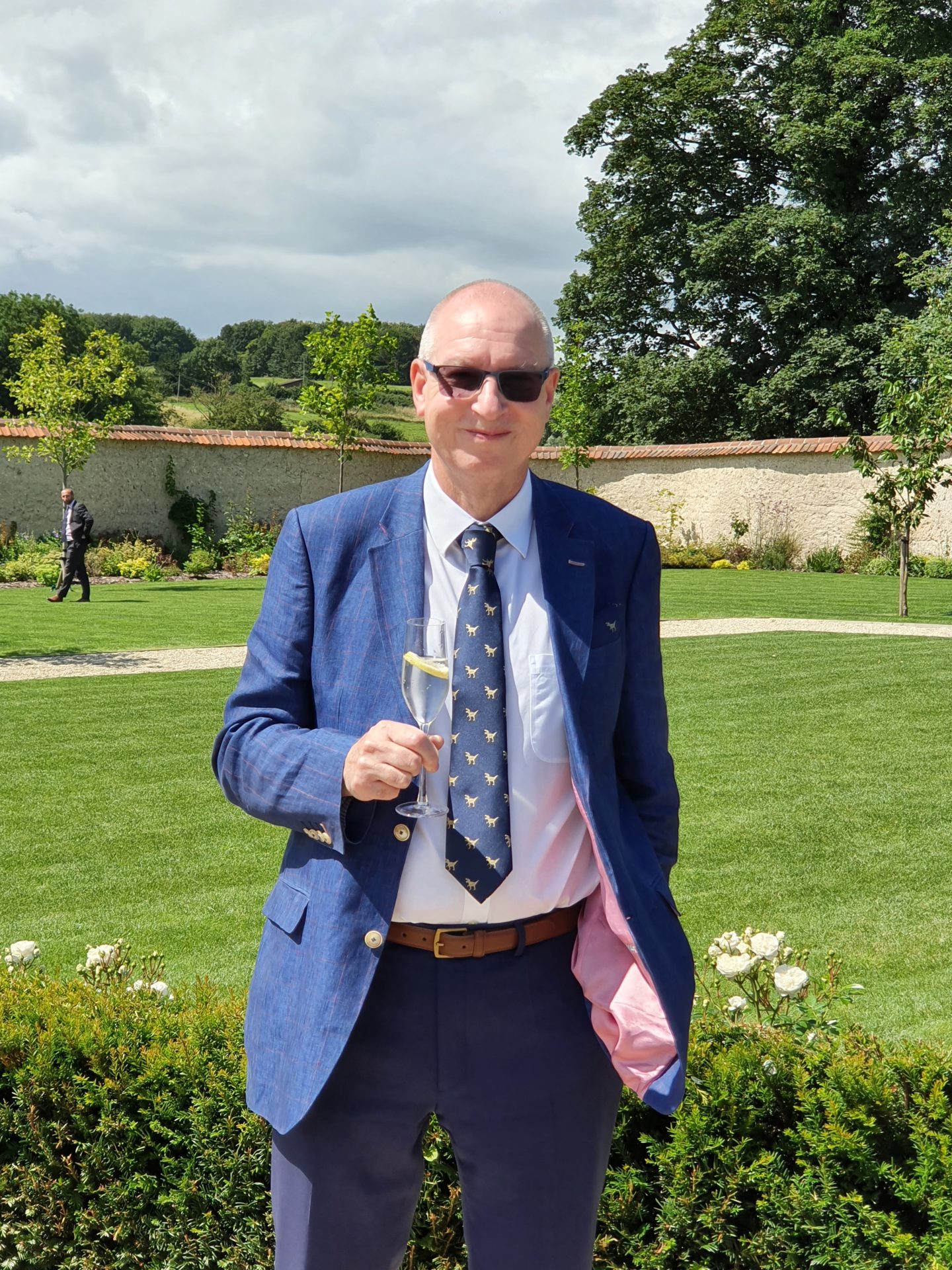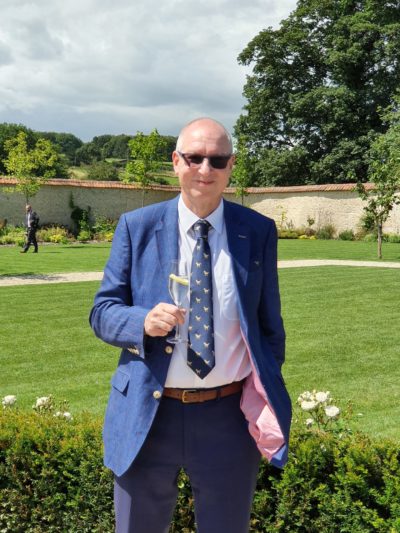Interested in volunteering
If you think you might be interested in taking up this type of volunteering role, please contact campaigns@pancreaticcancer.org.uk.




For the first time ever, in its newly published guidance, NHS England says that pancreatic cancer should be diagnosed quicker than other cancers. Our incredible supporter, Charles Czajkowski, played a crucial role as a patient expert on the NHS group that developed this guidance.
Here, Charles shares more about his role advocating for people affected by pancreatic cancer on the group, how he was supported by Pancreatic Cancer UK, and what it meant to be involved.
I’m Charles Czajkowski, 65 years of age, I’m married, have one son and a dog but I am also a pancreatic cancer patient. I was lucky that it was caught early, and I had a robotic Whipple’s procedure just one week after diagnosis. Following this, I received chemotherapy for six months – but in May 2022 I had a recurrence of the cancer.
I am now receiving chemotherapy every two weeks which is currently controlling my disease. Although I get some side effects from the chemotherapy, I feel back to normal the second week of each cycle and have a good quality of life, with the help of my insulin and Pancreatic Enzyme Replacement Therapy (PERT), which provides the enzymes I need to digest food.
Early diagnosis saved my life. That’s why it is crucial to me to raise awareness of the early symptoms and encourage people to act upon them by going to their GP. I’ve now dedicated my life to doing this, through joining and supporting PCUK. I’m involved with PCUK’s work in a broad number of ways, including by sharing my cancer journey with the media and supporters, reviewing research projects with their research team, raising funds and joining their Scientific Advisory Board (SAB).
Through working with PCUK I’ve had the opportunity to join a number of national panels as a patient expert, including working on projects with NHS England, the National Institute for Health and Care Excellence (NICE) and the National Institute for Health and Care Research (NIHR). Personally, being part of these projects helped me feel like I was getting control over my pancreatic cancer. I felt that I could use my personal battle to improve the chances of survival for other people and the next generations to come.
Early in 2022, PCUK’s Campaigning, Health Improvement and Policy team approached me about becoming a patient representative on the national expert advisory group to support the development of NHS England’s new guidance for health services, called the Best Practice Timed Pathway (BPTP). This ‘pathway’, published in March 2024, lays out the journey someone should be taken on from being diagnosed with pancreatic cancer through to final decisions on treatments.
My role as part of this NHS England group was to represent and advocate for the needs of people with pancreatic cancer going through this journey.
I found that my role was much needed: many experts from the medical world needed a reality check to fully grasp the range of needs (emotional, psychological, physical and wellbeing) someone facing pancreatic cancer has when faced with decisions about their diagnosis and treatment.
Having someone like me there, who has gone through the whole process, was vital. It humanised the whole approach and made sure that the needs of the patient were considered, rather than looking purely through the lens of the medical staff.
At each stage, I was listened to. My views were taken into consideration and were weighted with the same level of interest as the oncologists, radiologists, GPs and other medical staff in the group.
The Best Practice Timed Pathway project is a very powerful and objective piece of work, which lays out clearly what needs to be done to give people the best chance of survivability and quality of life. It lays out how some of the currently dreadful outcomes for patients can be mitigated – to some level – if the right process, timings and treatments are made available to everyone across the UK, without a post code lottery.
The key focus was to make sure that diagnosis happens within 21 days rather than 28 days – or more in some cases, which is totally unacceptable. I’m pleased to see that the final published guidance recommends this.
It was also critical for me to make the point that access to PERT should be a priority across all NHS trusts as early as feasibly possible, to give patients the best chance to be strong enough to have some form of treatment, whether Whipple’s surgery or chemotherapy. So, it’s very gratifying to see that the published guidance recommends that PERT should be offered to patients within five days of being referred for tests by their GP.
Crucially, the guidance recommends that all decisions regarding diagnostics and treatments are made in a ‘Just In Time’ timeframe. This sends a very clear message to the Government and its Health Department that pancreatic cancer is not like most cancers: it must be made a priority if we are to transform survival outcomes for pancreatic cancer.
I was very well supported by PCUK to prepare for each meeting through online discussions and useful reading material. PCUK staff helped me to understand some of the more technical aspects and were always on hand for any questions or worries in respect to my role. We always debriefed after each expert advisory group meeting to make sure I was happy with the process and the way I was treated, and my views were respected.
Being involved in this vital project with NHS England gave me a better meaning to this adversity in my life. Although I’m fighting this dreadful cancer, it felt like I could do something good, rather than just giving into the cancer with the time I have left – whatever that is.
I also became better educated to the language used by the medical world which gave me a lot more confidence when dealing with medical staff and to ask the right questions so that I can make the right decisions for me.
If you think you might be interested in taking up this type of volunteering role, please contact campaigns@pancreaticcancer.org.uk.